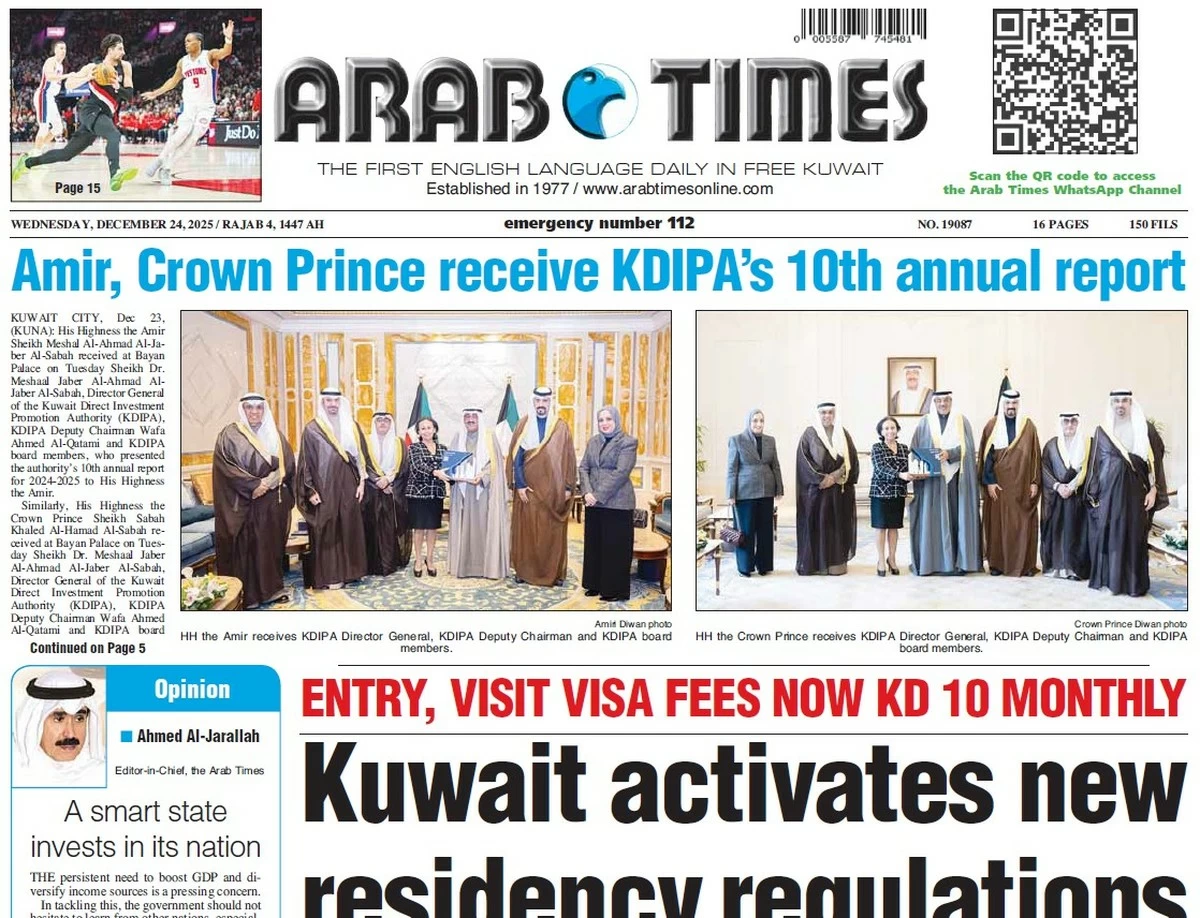02/06/2022
02/06/2022
KUWAIT CITY, June 2: The Ministry of Higher Education (MoHE), from 2015 until 2021, has discovered 140 forged certificates that were submitted for accreditation through the automated systems implemented by the Ministry to authenticate university degrees for 133 people, reports Al-Qabas daily. The Undersecretary of Higher Education, Dr. Subeih Al-Mukhaizeem, said the ministry’s efforts were to develop and implement mechanisms to combat forgery in university and professional certificates, and to set objective criteria for their equivalency, in a discussion session of the Public Anti-Corruption Authority (Nazaha), in the presence of its president, Eng. Abdulaziz Al-Ibrahim and its Acting Secretary General, Dr. Muhammad Buzbar. Al-Mukhaizeem revealed the ministry has won 93% of the cases filed against it from certificate holders whose certificates were refused equivalency, for not meeting the necessary conditions, especially those issued by the Philippines, India, Slovakia and the University of Athens in America, while other cases are pending before the courts.
During the presentation, Al-Mukhaizeem confirmed that the ministry, in turn, is taking the necessary measures for the forged certificates and referring them to the Public Prosecution, indicating that it has referred all the files it has to the legal authorities, in addition to following up on the merits of the investigations.
In turn, Buzbar said that the session represented part of the initiatives of Kuwait’s strategy to enhance integrity and combat corruption, which included projects aimed at enhancing integrity and transparency in the educational system, most notably following up work on developing and implementing mechanisms to combat forgery in university and professional certificates, and setting objective criteria for equivalency, in addition to initiatives concerned with integrating anti-corruption values into education, training education personnel on building a culture of integrity and combating corruption, and reviewing curricula related to teaching professional ethics in universities and institutes.
He stressed that the strategy set a set of objectives to provide an environment incubating integrity against corruption, and to build a national culture in which all procedural systems and legal concepts that depend on the principles of integrity, transparency and the rule of law are rooted, and to reduce the risks of corruption in the educational sector, especially on the outputs of this important sector, and to make recommendations about it, in coordination with our partners, including the Ministry of Higher Education.


